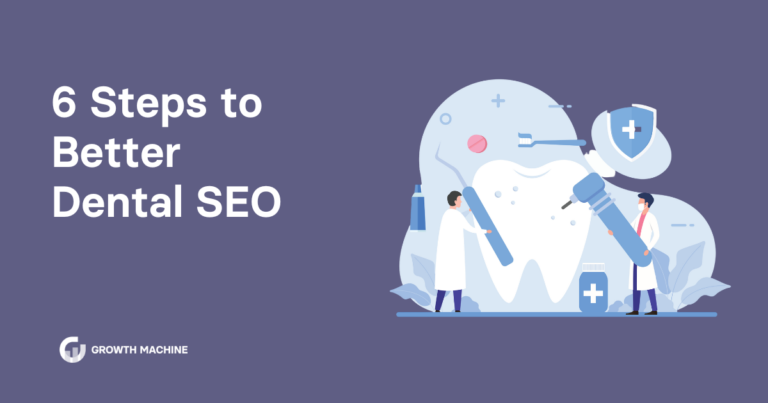What Are Backlinks? Decoding the Backbone of Successful SEO
From meta descriptions to blog copy, successful search engine optimization (SEO) requires a lot from website owners. If you want to boost your visibility in the search engine results pages (SERPs), you’ll need to invest in link building, a key element of SEO where you source high-quality external links to your site.
Think of backlinks as a vote of confidence signaling to search engines that you offer valuable, trustworthy content. However, not all backlinks are good backlinks. And earning backlinks requires more than asking folks for them. You’ll need to follow a careful backlink strategy to see tangible SEO results.
That’s why in this guide, we’ll explain what backlinks are and how they affect SEO. We’ll also offer four tips to help you build your strategy and leverage backlinks to increase your site visibility and organic traffic.
What Are Backlinks?
Backlinks, also called inbound links or incoming links, are simply hyperlinks from one website to another. When a website hyperlinks to another domain, it’s effectively vouching for the quality and relevance of that site’s content.
There are several types of backlinks, including:
- Follow links: Also known as dofollow links, these links pass SEO juice between websites and can directly improve your search engine rankings.
- Nofollow links: While these links don’t directly pass on SEO value, they can still contribute to SEO by boosting organic traffic.
- Internal links: These are links within your own website that connect different pages and help improve user navigation and SEO.
- External links: External links come from other websites, which can improve your site’s authority and Google rankings.
How Backlinks Affect SEO
Search engines care about backlinks because they affect the user experience.
On the human end, backlinks act as a pathway for users to navigate between different websites and find the exact information they’re looking for. But on the search engine side of things, search engine algorithms analyze your backlinks to determine whether your site is credible.
What’s good for human users is usually good for search engines, so it makes sense that Google wants to see as many high-quality backlinks to your site as possible. In fact, backlinks are one of Google’s top eight SEO ranking factors.
If you’re trying to boost your site’s visibility in search, backlinks have a tremendous impact on SEO by:
- Improving authority: Backlinks from high-authority websites act as endorsements for your website. Search engines view these quality links as signals that your site is legit. This can boost your site’s domain authority and improve its ranking on the SERPs.
- Driving organic traffic: Authoritative websites usually get a lot of traffic, so earning a backlink from a major website can increase your traffic. Users who visit these reputable sites are more likely to click on the link to your webpage, resulting in more visitors and potential customers.
- Strategically integrating anchor text: The text used in a hyperlink (known as anchor text) can influence how search engines understand the content of your page. When the anchor text includes target keywords, it can improve your site’s ranking for those terms, too.
4 Tips for Acquiring Quality Backlinks
Acquiring backlinks will steadily boost your search engine presence over time, but it can quickly become one of the most time-consuming parts of SEO. It takes time to see results from any backlink strategy, but these four practices will fill your backlink bank in no time.
1. Follow a Link-building Strategy
Gathering backlinks for your site takes time. Instead of gathering them willy-nilly, follow a strategy to boost your backlink profile:
- Create high-quality content: Authority websites are more likely to link to content that’s well-researched, informative, and engaging. Focus on producing quality content that addresses the needs and interests of your target audience. This includes both written content and helpful visuals, like infographics. If you don’t have the resources to develop content internally, work with an SEO agency like Growth Machine. See how we increased a client’s traffic by 600% through a powerful backlink strategy.
- Write guest blogs: Writing guest posts for reputable blogs in your industry will earn you more follow links. However, you need to invest in regular outreach to site owners requesting these blog posts. You’ll get more features if you target bloggers or webmasters in your niche who need specialized content, so keep your focus narrow.
- Offer pro advice in online forums: Engage in industry-specific forums and online communities. By providing valuable insights and linking back to relevant content on your site, you can earn organic search traffic and quality backlinks.
2. Analyze Your Link Profile
What kinds of backlinks do you have right now? A link profile analysis gives you a snapshot of your site’s health and the overall effectiveness of your backlink strategy. If you aren’t sure whether search engines find your website high-quality, a link profile analysis will give you the answers.
Analyze your link profile by:
- Using the right tools: Tools like Ahrefs, Semrush, and Google Search Console provide detailed insights into your backlink profile. They help you monitor the number of backlinks, referring domains, and the overall quality of your external links.
- Evaluating link types: Differentiate between follow links and nofollow links. While both types can drive traffic, follow links pass on SEO value and have a direct impact on your search engine optimization efforts. Ideally, you want a mix of both.
- Checking on your competitors: Analyze your competitors’ backlinks to identify potential link-building opportunities. Tools like Ahrefs and Semrush can show you where your competitors get their backlinks from. You can’t copy their backlink profile exactly, but this recon can help you target similar backlink sources.
- Reviewing referral traffic: Are your backlinks generating traffic? Links from high-authority sites should drive significant traffic to your site, contributing to increased organic search visibility.
3. Disavow Bad Links
So, what do you do if a bunch of spammy sites link to your website? Left unaddressed, this can lead to a noticeable dip in authority and SEO performance, so you can’t let these spammy links linger.
Bad links can affect your search engine rankings, but the good news is that you have the power to say “no thanks” to them through the disavowal process.
Disavowing is a big deal, so only disavow links from sites that are clearly spammy, irrelevant, or part of link schemes. Fair warning: the disavowal process is a bit technical, so it’s best to work with an SEO pro on this one.
Make a list of the links you want to disavow and submit the disavow file to Google Search Console. It will take a few weeks for search engines to catch on, but they’ll eventually stop associating your site with the low-quality backlink.
Unfortunately, this isn’t a one-and-done task. Regularly review your backlink profile and update your disavow file as necessary. As new spammy or low-quality links appear, include them in your disavow file to maintain a clean backlink profile.
4. Follow White Hat Backlink Practices
There’s no such thing as a quick fix in SEO. In fact, if search engines catch you using black hat SEO techniques—which try to trick search engines into improving your rankings—you’ll pay for it dearly. Unethical practices might give you short-term gains, but the penalties aren’t worth it.
Avoid black hat practices like:
- Keyword stuffing
- Cloaking
- Link schemes
- Hidden text or links
There’s no replacement for hard work. You can only improve your search engine rankings by following white hat (ethical) SEO practices like:
- Creating linkable, high-quality content
- Using ethical link-building strategies like guest blogging
- Optimizing your website’s user experience
- Improving on-page SEO elements like title tags, meta descriptions, and anchor text
Ace Digital Marketing With a Backlink Blueprint
Backlinks tell search engines you have a credible, trustworthy website. You can’t build trust overnight, but with the right backlink strategy, you’ll steadily win over both human users and search engines.
Awareness and consistency are key to SEO success, so as long as you monitor your backlink profile and make progress on it every month, you’ll be in good shape.
However, you need plenty of content to support backlinks, and that’s where things get tricky. Small businesses don’t always have the time to invest in high-quality content required for backlinking, leaving them in SEO limbo. Don’t lose your progress: partner with Growth Machine’s SEO experts to manage every aspect of the SEO content process. Contact us now to build the foundation of your SEO strategy.







